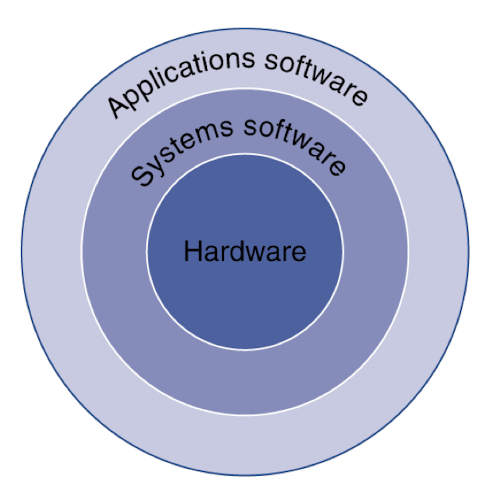Computer-Architecture 1. Computer Abstractions and Technology
컴퓨터 구조 공부 기록
Computer-Architecture 1. Computer Abstractions and Technology
컴퓨터의 종류
- personal computer : 범용 목적의 컴퓨터
- server computer : 네트워크 기반, 높은 수행 능력, 높은 신뢰성
- super computer : 수학적, 과학적 문제를 해결하기 위한 목적의 높은 연산력을 가진 컴퓨터
- embedded computer : 장치의 구동을 책임지는 컴퓨터, 자원들이 제약적이다.
컴퓨터의 성능에 영향을 미치는 것들
- algorithm : affects instruction count
- programming language, compiler, architecture : determine number of machine instructions executed per operation
- processor and memory system : determine how fast instructions are executed
- I/O system(including OS) : determine how fast I/O operations are executed
성능을 개선 시키는 7가지 아이디어
- Use abstraction to simplify design
- Make the common case fast
- performance via parallelism
- performance via pipelining
- performance via prediction
- hierarchy of memories
- dependability via redundancy
Below Your Program
- application software
- written in high-level language(HLL, ex : C, C++, Java)
- System software
- Compiler : translates HLL code to machine code
- Operating System : service code
- handling input/output
- managing memory and storage
- scheduling tasks & sharing resources
- Hardware
Levels of Program Code
- High-level language
- Level of abstraction closer to problem domain
- provides for productivity and portability
- Assembly language
- Textual representation of instructions(기계어와 동일하지만 사람이 읽을 수 있는 언어)
- Hardware representation
- Binary digits(bits)
- Encoded instructions and data
Inside the Processor(CPU)
- Data path : performs operations on data(데이터 운반)
- Control : sequences datapath, memory(datapath를 조정)
- cache memory (SRAM): 자주사용하는 것을 저장
- CPU core : 연산 기능 담당
컴퓨터의 성능을 판단하는 기준
- 응답시간(Response Time, execute time) : 어떤 일을 하는데 걸리는 시간 (일반적으로 이것을 성능으로 여김)
- Through put : 단위 시간 동안 얼마나 많은 시간을 할 수 있는지
- 더 빠른 버전의 프로세서로 교체 할 경우 : response time 증가, through put 증가
- 프로세서 하나 더 추가 : through put 중가, response time 증가 혹은 감소
- performance(성능) = 1 / (response time)
Execution Time 측정
- elapse time : 프로그램을 시작해서 끝날 때 까지, 시스템에서 소요한 모든 시간 (processing, I/O, OS, Idle time 등 전반적인 것을 포함)
- CPU time : 해당 일을 하는데 걸린 순수 시간(I/O 시간 제외). 즉, 해당 프로그램이 돌아가는데 CPU를 차지한 시간 + kernal이 돌아가는 시간
CPU의 clock
- 주기적으로 1과 0이 반복되는 신호
- clock의 포현
- CPU Time = CPU clock cycles * clock cycle time = cpu clock cycle / clock rate
- 즉, 성능(performance)를 개선시키기 위해선
- clock cycle 줄이기
- clock rate 높이기
Instruction Count and CPI
- Instruction Count : program과 system이 수행한 명령들의 수
- CPI(Cycle Per Instruction) : Instruction 하나 수행하는데 걸리는 시간
- Clock Cycles = Instruction Count * CPI
- 단, Instruction 하나를 수행하는데 여러 Cycle이 걸릴 수 있다.
- clock cycle을 줄이는 방법
- Instruction Count를 줄인다.(ISA를 잘 설계해 고급 Instruction을 만든다.)
- CPI를 줄인다.
Multi processor
- 하나의 processor chip에 여러 개의 core가 들어감
- 그럼에 따라 병렬 프로그래밍이 명시적으로 필요해짐
This post is licensed under CC BY 4.0 by the author.

